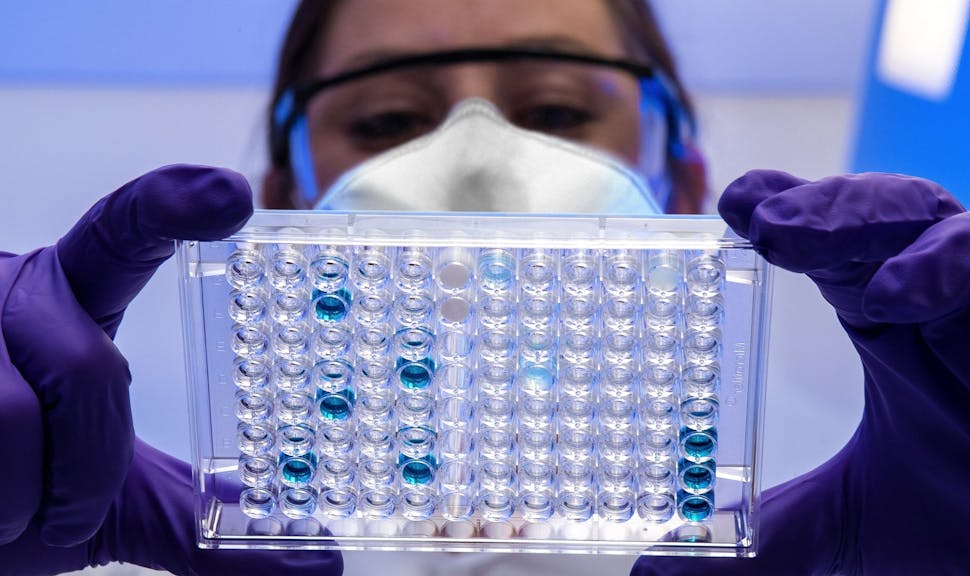

Dr. Santiago MazuelasAXA Research Fund grantee at the Basque Center for Applied Mathematics (BCAM)
March 21, 2021
Machine Learning to Predict Health Outcomes
Deployed at a wide scale, this technology can help healthcare systems better allocate their resources, which can be leveraged to increase access.
3 minutes
Original content: The AXA Research Fund
During the COVID-19 pandemic, machine learning was harnessed to help predict health outcomes. For a disease whose symptoms ranged from severe breathing problems and even death to asymptomatic infections, machine learning provides a valuable tool to best anticipate the health needs of a population and prescribe the best care for individual patients. Deployed at a wide scale, this technology can help healthcare systems better allocate their resources, which can be leveraged to increase access. AXA Award Santiago Mazuelas explains how this technology can help predict the severity of COVID-19 diagnosed patients.
Differently from other diseases, COVID-19 infections result in particularly distinct outcomes: certain patients remain asymptomatic during the infection, some other experience moderate symptoms for a few weeks, and yet others suffer acute or even critical complications. Wrong assignments of care’s type for COVID-19 patients may cause fatal outcomes, and lack of isolation measures for asymptomatic infections may increase COVID-19 propagation among the population. These facts pose a key challenge for COVID-19 containment since the most pertinent countermeasures at the time of infection’s detection are markedly different for each type of patients.
The project Early Prognosis of COVID-19 Infections Via Machine Learning
develops machine learning techniques for the early prognosis of COVID-19 infections that predict infections’ future severity using health data obtained soon after the detection. This project has been funded by the AXA Research Fund under the Exceptional Flash Call Mitigating risk in the wake of the COVID-19 pandemic
and is being carried out at the Basque Center for Applied Mathematics (BCAM) from October 2020 to October 2023.
The algorithms developed in the project can be used by medical personnel or public health stakeholders to taketimely decisions that result in favorable outcomes. For instance, an infected patient with a negative early prognosis who is predicted to have a positive response to treatment can be directly transferred to semi-intensive care before he/ she undergoes notable symptoms.
In addition, the prediction algorithms developed in the project can also be used to closely monitor noninfected individuals with high probabilities of being asymptomatic or suffer complications in case they become positive for COVID-19.
The techniques developed in the project utilize multimodal and information-rich health data to predict the future severity of COVID-19 infections. This health data is composed by clinical data such as age, sex, weight, blood pressure, body temperature, heart rate, respiratory rate, and past medical history (PMH), together with more detailed metrics such as those obtained from biochemical tests. The learning techniques developed in the project use a large amount of electronic health records to learn the complex relationship between health data instances and COVID-19 severity. The project will address several scientific and technical challenges both for data processing and learning algorithms’ design including the usage of unbalanced training samples affected by selection bias, and the development of costsensitive techniques.
One of our first developed algorithms is able to predict the risk of a fatal outcome when a new COVID-19 patient is admitted to the hospital with a 90% sensitivity (true positive rate) and 75% specificity (true negative rate). Algorithms like this one are designed to become a key aid for healthcare providers when assessing incoming patients.
In addition to the prognostic component, machine learning based algorithms can also provide new working hypothesis on the pathogenesis of COVID-19. One example for us is the inclusion of various eosinophil blood markers (variety of white blood cell markers) as relevant predictors, unveiling the importance of these particular white blood cells in the protection against the SARS-CoV-2 infection. Several teams of researchers across the world are pursuing similar endeavors, with the hope that soon we could all exploit data from multiple countries and continents allowing the creation of more accurate and precise prognostic tools for COVID-19. The machine learning techniques developed in this project can enable remarkable improvements in the way healthcare systems operate. In particular, they can serve to improve they way in which medical and public health decisions are taken to treat and manage COVID-19 infections. In addition, the learning algorithms developed in the project can also enable healthcare systems to better categorize risks of individuals. More broadly, the learning methodologies developed in the project can be leveraged to develop machine learning methods that assess the likelihood of future adverse general events based on data obtained ahead of time.
Find out more about Dr. Mazuelas' project
Early Prognosis of COVID-19 Infections Via Machine Learning
PROJECT PAGETags:
Data in Health


